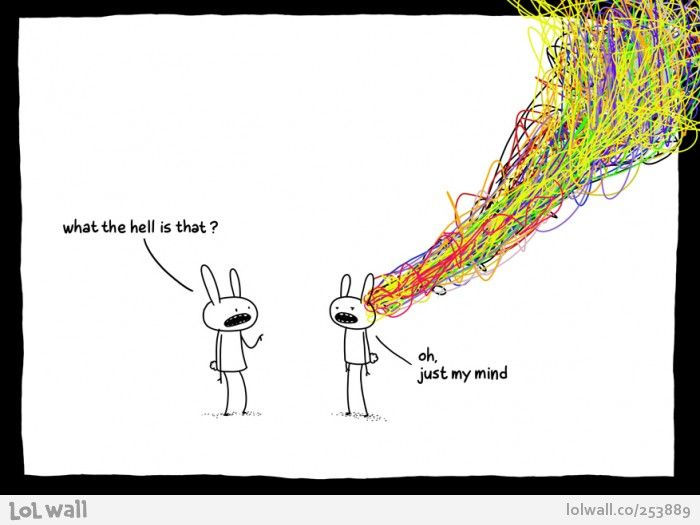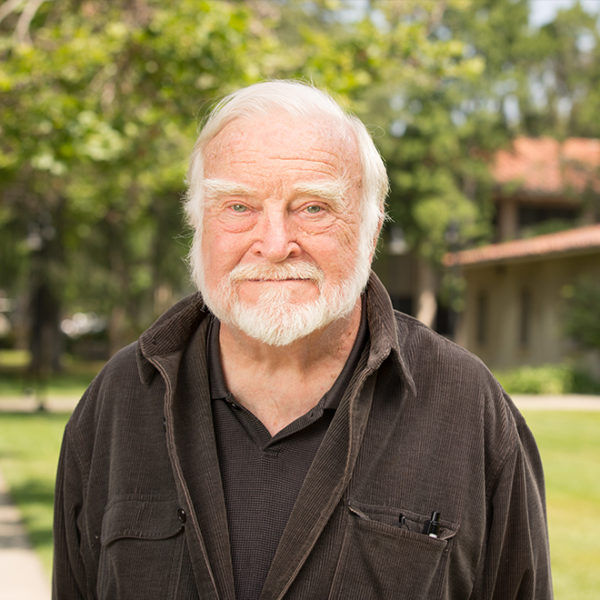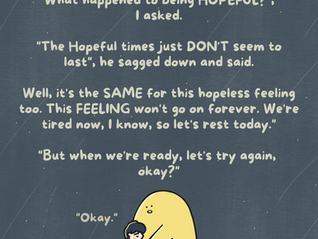Why getting into "Flow" will make you happier.
- Hernping
- Mar 8, 2021
- 9 min read
Updated: Oct 23, 2021
Ever felt like you were wasting your time and your life away, doing meaningless things week after week?

Let me introduce you to a chim ("complex") but cool-sounding psychology term - Psychic Entropy.
Despite sounding cool, it's really not such a good thing.
Looking into its constituents - Psychic Entropy refers to how our psyche becomes disordered. There is a "decay" or lack of order in our thoughts and in our minds.
It comes about when a part of ourselves becomes aware that there is a lack of meaningful content in our lives.
This means that when we internally reflect on how we've spent our time and energy, it hasn't felt like a meaningful one.
It feels wasted.
On the flip side, we are all somewhat aware of our goals and purpose in our lives or, at least, what we hope to achieve at this point of our lives.
Psychic Entropy arises when we become aware that the way we spend and use our time are incongruent with those goals and purposes.
In part, it's one of the causes behind Sunday Depression - where looking back on our week just leads us to see we've achieved nothing, and the week ahead looks like it's just going to be the same thing.
A part of us knows we need to change something, but yet we do nothing about it.
I mean, ever found yourself sitting in front of the TV or scrolling through Instagram looking for something to entertain you. Yet, as time goes by, you can't help but feel more and more frustrated and restless?
That's psychic entropy at work.
Too many of us fall into this trap.
Of course, it's entirely okay to engage in meaningless activities from time to time, we all need to relax and chill out right?
But when it becomes excessive, this internal incongruence starts to grow.
An internal argument in our mind sets in, with a part of us being aware of the more important things we should be doing, while another contradictory side of our minds chooses to persist in meaningless behaviours.
We might fail to take up more meaningful activities for any number of reasons:
We know what is a better use of our time, but it takes more effort than we can summon.
We procrastinate and leave it for "next week".
We might be feeling tired, or even hungover from partying.
We might even suffer from depression, and lack the energy and motivation to get up and do something.
When we experience Psychic Entropy, our thoughts are unable to flow in a concrete fashion.
Because of the internal struggle going on in our minds, we are left with a vastly reduced ability to deal with complex tasks. It might cause you to struggle on focusing on your work and personal goals. We also struggle to think and reflect with clarity.
Psychic Entropy makes our thoughts go haywire and we can't determine where we should turn our attention to. This is especially because we have not provided ourselves with useful goals to direct ourselves to.
As such, Psychic Entropy is characterised by a state of inner frustration and a sense of Emptiness in our lives.
Often, it might even lead to depression, anger or anxiety.

We deal with it rather poorly - the vicious cycle of Psychic Entropy.
To get rid of that negative feeling arising from Psychic Entropy, one misguided way is to distract our minds with whatever information is readily available.
It doesn't matter how silly or pointless it is, just as long as it distracts us from turning our attention inwards and onto our negative feelings.
This explains why such a huge proportion of our time is invested into watching television and Netflix. We marathon through a variety of Korean Dramas or eight seasons of How I Met Your Mother in a single day.
Or scroll through social media, even when it makes us more and more bored.
Such distractions provide us with an endless stream of easily accessible information we can use to fill our attention. And we do this even when we no longer enjoy it.

We do this all the while waiting for a sense of wholeness or peace of mind or purpose to arrive.
Yet, it is so clear that these distractions, avoidances and indulgences will not change anything of importance.
"Few things are sadder than encountering a person who knows exactly what he should do, yet cannot muster enough energy to do it." -Mihaly Csikszentmihalyi
On the other hand, take a second and think about the last time you were really engaged in an activity that you were entirely absorbed in doing.
You immersed your entire consciousness into the activity, and the only thing that mattered was the activity itself and getting to some near-term goal you've set for yourself.
All sense of Time seemed to flow away from your consciousness, and along with that, your sense of self. Any thoughts, worries and concerns outside of the activity were superseded and forgotten for the moment.
The conditions of the task required it.
It was challenging, but not too daunting that would cause you any stress. Moreover, it seemed to be just the right amount of challenge that required you to stretch your skill and mind.
After hours, minutes, seconds passing by in an instant, you finally emerge from the activity and a sense of accomplishment and reward washes over you. It feels like you've stretched your competencies to the next level.
Looking back in retrospect, you can't help but feel a sense that you thoroughly enjoyed the experience.
In Psychology, such experiences are called Flow States.
Mihaly Csikszentmihalyi (I still can't pronounce his name) is a Hungarian Psychologist and a lifelong researcher on such experiences of Flow.
He has spent many decades studying the Psychic Entropy condition. More importantly, he is globally acknowledged for recognising and naming the psychological concept of Flow.
From what we talked about above, we now know that any habits that depend on external stimulation aren't helpful in bringing back order to our consciousness and order to our lives.
It becomes apparent that we need to focus on habits that we can internally control in order to regain our lives.
Building a life of engagement through Flow then becomes the answer to rediscovering Happiness.

Flow is experienced universally, and occurs across all genders, ages and cultures. The number of activities it encompasses is limitless.
In his book, Flow: The psychology of optimal experience, Mihaly shares a myriad of examples how people can enter these states of Flow.
These are:
The composer, melding himself into the symphony he orchestrates in his mind.
The violinist, mastering an intricate new piece of music.
The swimmer, battling the open sea to beat his best record.
The artist, bringing his mind's creation onto canvas.
The writer, getting absorbed in the very story he weaves.
Even the factory worker, who gamifies his work to assemble in the most efficient manner he knows possible.

According to Mihaly:
"When the information that keeps coming into awareness is congruent with goals, psychic energy flows effortlessly. There is no need to worry, no reason to question one’s adequacy.
But whenever one does stop to think about oneself, the evidence is encouraging: “You are doing all right.”
The positive feedback strengthens the self, and more attention is freed to deal with the outer and the inner environment."
It should be noted that during such states of Flow, we don't actually feel any sense of Happiness.
To experience emotions like Happiness requires us to turn our attention inward, which would then take away our attention from the task at hand.
Rather, it is only after the task is completed that we have the pleasure to look back on what has happened. It is then when we become flooded with gratitude and the purposefulness of the experience.
Through Flow, we attain Happiness by our own making.
We can create Flow by setting up an activity with the following Three conditions.
The activity must be challenging based on your current skill level.
There are immediate goals and feedback for each session.
You feel intrinsically rewarded by growing your physical or intellectual skills.
Note to the tight-butts out there: Mihaly originally details eight conditions. The remaining five that I won't go into are the effects during a state of Flow, such as a distorted perception of time which I've already described above.
1. The activity must be challenging based on your current skill level.
This swee swee diagram below is often shared by Mihaly Csikszentmihalyi to explain the balance between challenge and skill in Flow.
As you can see, different emotional states can arise depending on the relationship between our skill level and the challenge on the task.

If someone said to me,
"Hey bro, let's go throw rocks in a longkang this whole afternoon".
I'd likely feel apathy after while, given there is no challenge nor would there be much skill involved. It's also just really stupid.
On the other hand, if someone had told me
"Hey bro, I've signed you up for a professional ballet dancing competition this afternoon".
First I might piak that person. Then I might start panicking since I have no skill whatsoever in ballet, and the challenge (not to mention the humiliation) would be way above my head.
To have Flow, you need to feel you are capable of doing the task ahead of you, and also that it is a worthwhile endeavour because of the challenge as well.
2. There are immediate goals and feedback for each session.
Having clarity of goals provide structure and direction to the activity. Some activities have goals inherently built into them.
For example, playing Chess has been well documented as a Flow activity. You either aim to win or get closer to winning. There is also a continued adjustment between challenge and skill, as you seek better players with an increase in your skill.
On the other hand, other activities require you to define that goal yourself. Of course, these have to be realistic as well.
In learning to play the guitar for example, you probably won't be able to play the solo to Stairway to Heaven on your first try.
Instead, a more realistic immediate goal might be to learn to strum a the chords of an easier song, like playing wonderwall by Oasis (almost everybody can play this song lol).

While goals provide you with direction, feedback tells you how close you are to your goal and if you're on the right track.
Like goals, some activities provide you with automatic feedback. In Chess, you either win or you lose. Some are not so clear cut but are comparably more intuitive.
Such as learning tennis or golf, you know when you've hit the ball well. In learning the ukulele, you know if what you play sounds right or not.
There are yet others you have to create your own intuition, just like me writing this right now.
I can write and write but have no feedback from people till much later, but my intuition tells me if my writing flows well or not (I think).
Without feedback, we don't know how we are performing and interest might start to waver.
3. You feel intrinsically rewarded by growing your physical or intellectual skills.
Flow is characterised by a sense of a forward movement, a sense of novelty and accomplishment.
You feel rewarded from playing a close game of tennis, or reading a book that sparks your imagination. Learning how to speak to someone in a new language like Japanese or picking up a new skill like programming stretches us intellectually.
All these activities make us look back and think that we've spent our time wisely because we've grown in some respect.
On the flip side, there are countless other activities we find ourselves doing that don't help us move forward in life.
One contention might be video games.
The game gets harder as your skills improved, and your goals and feedback of getting to the next level are well defined.
Yet, if you walk out of the experience feeling like it was yeah it was fun, but just a means to waste some time, it clearly fails this criteria of Flow.
We all engage in activities that are pretty meaningless. I think we know this well, and yes, that includes the hours and hours of cat videos you've spent watching.

Flow is thus the state of optimal human functioning, driven by engaging in tasks that add to our complexity and growth in our unique existence.
In your hearts, you probably know all of this at some level already.
This is also the reason why Positive Psychology recognises Engagement as one of the core pillars of Happiness and Wellbeing (i.e. in the PERMA model.
So if what I've shared about Psychic Entropy resonates with how you've been feeling, why not start to explore this concept of Flow?
Here's one more quote from Mihaly for good measure.
“The best moments in our lives are not the passive, receptive, relaxing times. The best moments usually occur if a person’s body or mind is stretched to its limits in a voluntary effort to accomplish something difficult and worthwhile.” -Mihaly Csikszentmihalyi.
So let me ask you this,
"Are you ready to get engaged in activities that help you grow, and make better use of your time right now?"
Then go on and check out my complete guide to getting in Flow. It's free and the links are below!
The Complete Guide to Getting in Flow:
A brainstorming exercise of all the activities that can get you into a Flow State.
We'll be shortlisting from the previous brainstorming activity, and ending up with a handful of only the most meaningful activities to work on.
We'll take the time to plan and build our chosen flow activities into our schedules. We'll also set goals so we can keep ourselves motivated!
Thanks so much for reading this post introducing the concept of Flow! If you think what you've read has been meaningful, please do share this page with your friends and leave a comment in the below!
.jpg)

























コメント